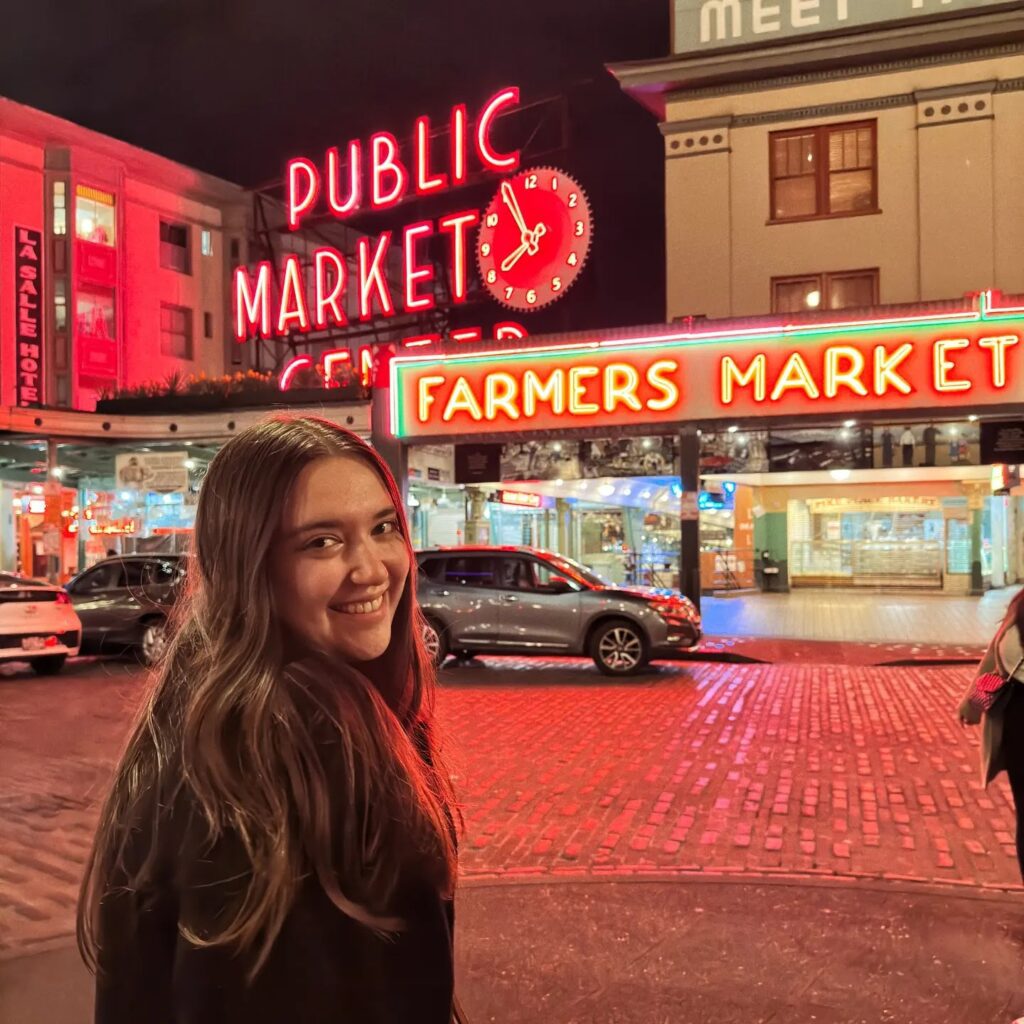It was chilly, cloudy, and lovely in Seattle when I arrived half an hour early for the first of several panels I’d picked all the way back in December: “Grief in the Asian Diaspora” featuring panelists Chris Santiago, Victoria Chang, Sequoia Nagamatsu, and Sejal Shah. Reading from an essay in Dear Memory (which I was lucky enough to have signed the next day), Victoria Chang quoted a fellow poet on the topic of their parents not talking about their pasts: “maybe it’s us, the next generation, who will write in response to that history.” Coming from a Japanese American family, that thought is at the foreground of my writing. What does it mean to speak back to a history too painful, too fresh, or too complex for your forebears to address? What does it mean to preserve that history, but also preserve the joy and the beauty? To sit in that beautiful room, feeling that those talented writers were speaking to me and my history, is something I hope every writer has the privilege of experiencing.
I could rant and rave about each panel I attended, about the overwhelming awe of walking through the bookfair, about the city of Seattle itself. I made the trek down to Pike Place on sore feet several times just to stare at the water and the mountains (and to revel in the glory of H Mart). What seasoned AWP veterans had told me was true: that the conference may only be three days, but by the end of Saturday you’ll be ready to crawl into bed and sleep for twelve hours. I did a lot in those three days: attended four amazing panels, manned the Cherry Tree booth, wandered the bookfair until I lost my sense of direction, and made it to two offsites. And yet it feels like there was so much more to be done. One more panel, one more offsite event, one more turn around the bookfair. But as writers, I think we get lost all too easily in our shortcomings. For me—and I hope, reader, for you—just being there was an accomplishment. Connecting with fellow writers and editors, making space for learning, and being open to discovery in such a powerful, condensed time frame is no small feat.
All of this is to say that in the end, what I’ll treasure the most is the togetherness. The sense of community. Looking around from the escalators, from the aisles in the bookfair, from the sidewalks outside the building, it was impossible not to be struck by how many people share in this passion. I’ll always feel fortunate to have found my way to the literary life. I think it’s our responsibility—and a beautiful responsibility—to preserve and expand this community for years to come. Now that this year’s AWP is in the past (and we’ve made it out of SeaTac one way or another), it’s only natural to look forward. To wonder about all the possibilities the future holds for writers. To tend to our small, local artistic communities before we all meet again.

Eylie Sasajima is a senior at Washington College, where she studies English. She is the editor-in-chief of Washington College’s undergraduate literary & arts journal, Collegian, and serves as a poetry reader for Cherry Tree. Her academic work spans medieval history, postcolonial literature, and gender in sci-fi, while her creative work focuses on women, south-central PA, and the apocalypse. She lives in Spring Grove, Pennsylvania. You can find her on Twitter @eylieblue or Instagram @eylie_blue.